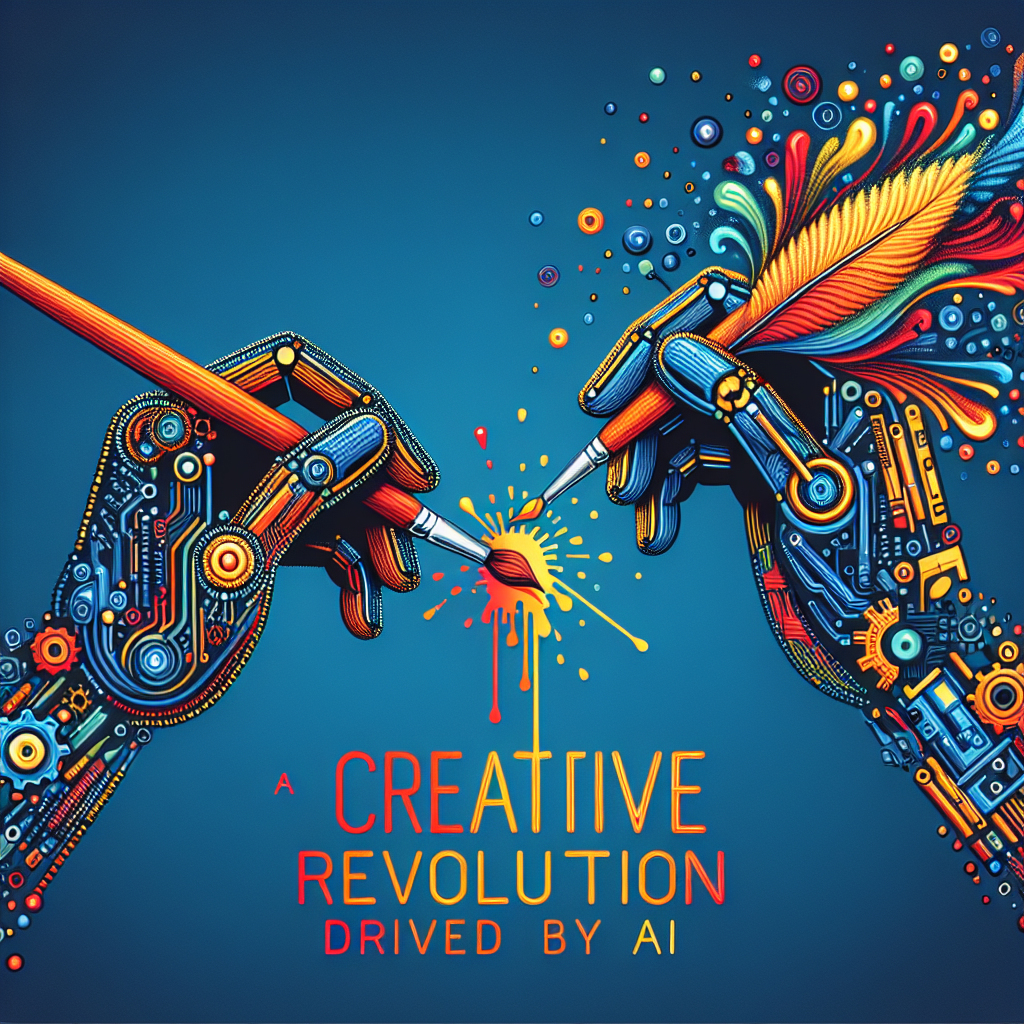The Creative Revolution: How AI is Redefining the Creative Process
In recent years, artificial intelligence (AI) has made significant advancements that are changing the way we approach creativity. From generating art and music to writing poetry and designing websites, AI is reshaping the creative process across various industries. This phenomenon has been dubbed the “Creative Revolution,” as it challenges traditional notions of what it means to be creative and introduces new possibilities for innovation.
One of the key ways in which AI is redefining the creative process is through its ability to analyze vast amounts of data and generate insights that human creators may not have considered. For example, AI can analyze patterns in music or art and create new compositions or designs that are inspired by these patterns. This can lead to the creation of unique and innovative works that push the boundaries of traditional creative processes.
Another way in which AI is changing the creative process is by enabling collaboration between human creators and AI systems. For instance, AI can assist writers in generating ideas or editing their work, helping them to overcome creative blocks or improve the quality of their writing. Similarly, AI can help artists and designers by providing suggestions for color schemes, layouts, or styles that they may not have considered on their own.
Furthermore, AI is democratizing creativity by making it more accessible to people who may not have traditional artistic or creative skills. With the help of AI tools and platforms, individuals can create music, art, or design projects without needing to possess advanced technical knowledge or training. This has the potential to democratize creativity and empower a wider range of people to express themselves creatively.
However, the rise of AI in the creative process also raises important questions and challenges. For example, there are concerns about the impact of AI on jobs in creative industries, as AI systems may replace or augment human creators in certain tasks. Additionally, there are ethical considerations surrounding the use of AI in creative processes, such as issues of ownership, attribution, and bias in AI-generated works.
Despite these challenges, the Creative Revolution presents exciting opportunities for innovation and collaboration in the creative industries. By embracing AI as a tool for creativity, human creators can push the boundaries of traditional creative processes and explore new possibilities for expression and innovation. As AI continues to evolve and improve, it is likely that the Creative Revolution will only continue to expand and shape the future of creativity.
FAQs
Q: Can AI truly be creative?
A: While AI may not possess human-like creativity in the traditional sense, it has the ability to generate new ideas, patterns, and designs that can be considered creative. AI systems can analyze data, identify patterns, and generate new compositions or designs that push the boundaries of traditional creative processes.
Q: How can AI assist human creators in the creative process?
A: AI can assist human creators in various ways, such as generating ideas, providing suggestions for improvement, and helping to overcome creative blocks. For example, AI can assist writers in editing their work or artists in choosing color schemes, layouts, or styles.
Q: What are the ethical considerations surrounding AI in the creative process?
A: There are ethical considerations surrounding the use of AI in creative processes, such as issues of ownership, attribution, and bias in AI-generated works. It is important for creators to consider these ethical implications and ensure that their use of AI is transparent and fair.
Q: How is AI democratizing creativity?
A: AI is democratizing creativity by making it more accessible to people who may not have traditional artistic or creative skills. With the help of AI tools and platforms, individuals can create music, art, or design projects without needing advanced technical knowledge or training.
Q: What are the challenges of AI in the creative process?
A: Some of the challenges of AI in the creative process include concerns about job displacement in creative industries, ethical considerations surrounding the use of AI, and questions about the impact of AI on traditional creative processes. It is important for creators to navigate these challenges thoughtfully and responsibly.

